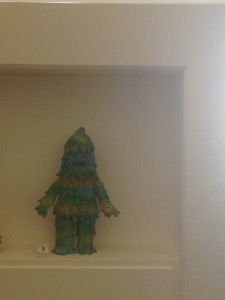By Christina Kallas
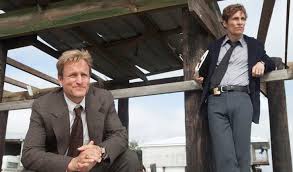 Paddy Chayefsky once wrote that “television is an endless, almost monstrous drain” (The Television Plays, 1955.) And he continued: “How many ideas does a writer have? How many insights can he make? How deep can he probe into himself, how much energy can he activate?” Furthermore, “he (the writer) has no guarantee that his next year will be as fruitful. In fact most writers live in a restrained terror of being unable to think up their next idea. Very few television writers can seriously hope to keep up a high-level output for more than five years.”
Paddy Chayefsky once wrote that “television is an endless, almost monstrous drain” (The Television Plays, 1955.) And he continued: “How many ideas does a writer have? How many insights can he make? How deep can he probe into himself, how much energy can he activate?” Furthermore, “he (the writer) has no guarantee that his next year will be as fruitful. In fact most writers live in a restrained terror of being unable to think up their next idea. Very few television writers can seriously hope to keep up a high-level output for more than five years.”


 The comparison with a novel or with watching a very long movie is a good one for yet another reason: serialization means that you cannot watch the episodes in whichever order they reach you. You have to watch the whole season as if you were watching a 12-hour movie. Terence Winter, creator of Boardwalk Empire and one of the writers for The Sopranos) talks about how the effort still goes towards ensuring that each episode may stand alone, as if it were a mini-movie. So when you just happen to watch this one it still has its own beginning, middle and end, and it makes sense. But it’s like one chapter in a book. To really appreciate it you have to watch the whole series, as you would read a book.
The comparison with a novel or with watching a very long movie is a good one for yet another reason: serialization means that you cannot watch the episodes in whichever order they reach you. You have to watch the whole season as if you were watching a 12-hour movie. Terence Winter, creator of Boardwalk Empire and one of the writers for The Sopranos) talks about how the effort still goes towards ensuring that each episode may stand alone, as if it were a mini-movie. So when you just happen to watch this one it still has its own beginning, middle and end, and it makes sense. But it’s like one chapter in a book. To really appreciate it you have to watch the whole series, as you would read a book. 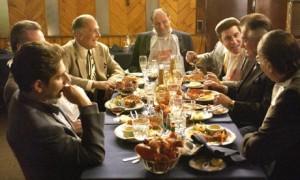 So should we be discussing TV series as nothing less than long cinematic narratives? And if so, what would that mean? It is fair to say that TV, just half the age of film, has only recently (perhaps in the last 15 years) come into its own. Writers have only recently learned to take advantage of the unique powers of the medium itself. For years the focus was on each episode being a complete story, a standalone. Not only in procedurals but in series generally, the dramatic focus was on the unit of the episode. A TV episode was a mini-movie (much as a web episode is a mini-TV episode now). Then the primary canvas of the TV medium became the season.
So should we be discussing TV series as nothing less than long cinematic narratives? And if so, what would that mean? It is fair to say that TV, just half the age of film, has only recently (perhaps in the last 15 years) come into its own. Writers have only recently learned to take advantage of the unique powers of the medium itself. For years the focus was on each episode being a complete story, a standalone. Not only in procedurals but in series generally, the dramatic focus was on the unit of the episode. A TV episode was a mini-movie (much as a web episode is a mini-TV episode now). Then the primary canvas of the TV medium became the season. 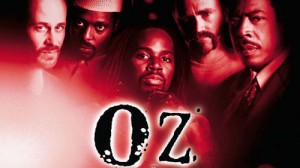 The prevailing idea is that film, like any other art form, is made by a single genius. TV drama is, however, more often than not the result of collaboration between many writers and minds. How is that possible, and what does it mean?
The prevailing idea is that film, like any other art form, is made by a single genius. TV drama is, however, more often than not the result of collaboration between many writers and minds. How is that possible, and what does it mean?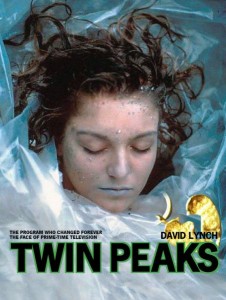 Filmmakers have always flirted with television. One has only to recall, from 1980, Rainer Werner Fassbinder’s Berlin Alexanderplatz, a series of, notably, thirteen 52-minute episodes plus an epilogue, or David Lynch’s Twin Peaks (1990/1991), which lasted for two seasons, the first with eight and the second with twenty two 50-minute episodes (the pilots were feature-length) or indeed Lars Von Trier’s The Kingdom (1994), a series of eleven 55-minute episodes. Cinema’s flirtation with the new form in fact started much earlier, perhaps with Roberto Rossellini’s infamous 1962 news conference where he declared that cinema, the medium for which he had directed such classics as Rome, Open City and Paisan, was dead and that he would henceforth be making movies for television.
Filmmakers have always flirted with television. One has only to recall, from 1980, Rainer Werner Fassbinder’s Berlin Alexanderplatz, a series of, notably, thirteen 52-minute episodes plus an epilogue, or David Lynch’s Twin Peaks (1990/1991), which lasted for two seasons, the first with eight and the second with twenty two 50-minute episodes (the pilots were feature-length) or indeed Lars Von Trier’s The Kingdom (1994), a series of eleven 55-minute episodes. Cinema’s flirtation with the new form in fact started much earlier, perhaps with Roberto Rossellini’s infamous 1962 news conference where he declared that cinema, the medium for which he had directed such classics as Rome, Open City and Paisan, was dead and that he would henceforth be making movies for television. 